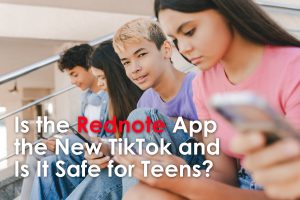Overview of ‘Hot Tub’ and Its Emergence
The introduction of ‘Hot Tub’ as the first pornography app available on iPhones marks a significant shift in the digital landscape. This development is facilitated through AltStore PAL, an alternative iOS app marketplace currently only accessible in Europe.
The emergence of ‘Hot Tub’ is a direct result of the European Union’s Digital Markets Act (DMA), which mandates that tech giants like Apple permit third-party app stores on their platforms. The DMA was introduced to promote fair competition and reduce the dominance of major technology companies by ensuring that users have access to a broader range of applications beyond those approved by Apple’s App Store.
Apple’s Stance on Pornographic Content
Apple has historically maintained a strict policy against the distribution of overtly sexual or pornographic material through its official App Store. This policy is enforced through stringent app review guidelines that prohibit sexually explicit content, ensuring that such apps are not made available through official channels. However, Apple does allow certain adult-themed apps that provide educational, artistic, or medical content, provided they adhere to its strict content policies.
This policy aligns with the company’s commitment to providing a safe and family-friendly ecosystem for its users. The introduction of ‘Hot Tub’ via a third-party marketplace challenges this long-standing stance, prompting Apple to express significant concerns regarding user safety, particularly for minors.
Regulatory Changes Under the Digital Markets Act
The DMA, enacted by the European Union, aims to foster competition and innovation by reducing the gatekeeping powers of major tech companies. Under this regulation, companies like Apple must allow alternative app stores on their devices, thereby providing users with more choices. While this promotes diversity in app availability, it also introduces challenges related to content moderation and user safety.
User Safety Concerns and Apple’s Response
Apple has articulated deep concerns about the safety risks associated with applications like ‘Hot Tub.’ The company emphasizes that such applications could undermine the trust and confidence that consumers have in its ecosystem, which has been meticulously cultivated over more than a decade. Apple’s apprehensions are mainly focused on the potential exposure of explicit content to children, which could have adverse effects on their development and well-being.
Protecting Children with Apple’s App Store Settings
Parents can take proactive measures to prevent their children from downloading inappropriate apps like ‘Hot Tub’ by adjusting Apple’s built-in parental controls. While these settings are effective in restricting access to explicit content, they are not foolproof, as tech-savvy children may find workarounds. Regularly reviewing settings and having open conversations about online safety remain essential for comprehensive protection. Here’s how to set up restrictions:
-
Enable Screen Time and Set Up Parental Controls:
-
Go to Settings > Screen Time.
-
Tap Turn On Screen Time, then select This is My Child’s iPhone.
-
Set a Screen Time Passcode to prevent unauthorized changes.
-
-
Restrict App Downloads and Purchases:
-
Under Screen Time, go to Content & Privacy Restrictions.
-
Enable Content & Privacy Restrictions.
-
Tap iTunes & App Store Purchases and set Installing Apps to Don’t Allow.
-
-
Limit Adult Content in Safari and Apps:
-
Under Content & Privacy Restrictions, select Content Restrictions.
-
Tap Web Content and choose Limit Adult Websites.
-
-
Set Age-Appropriate App Ratings:
-
Under Content Restrictions, tap Apps.
-
Select an appropriate age rating (e.g., 12+ or 17+).
-
By implementing these settings, parents can significantly reduce the risk of their children being exposed to inappropriate content on their iPhones.
Internet Safety Resources for Parents
Given the evolving digital landscape, parents must stay informed about online risks and take proactive steps to safeguard their children. Cyber Safety Cop, founded by Clayton Cranford, offers valuable resources to help parents navigate the complexities of digital safety.
Recommended Resources:
-
Website: CyberSafetyCop.com
-
Book: Parenting in the Digital World – A definitive guide for parents providing practical tools and strategies for online safety.
-
Book: Screen Time Standoff: Negotiation Skills to Unplug Your Kid – A groundbreaking guide offering negotiation strategies to help parents manage their child’s screen time effectively.
-
App: OurPact – is a parental control and family locator app designed to help parents manage screen time, block inappropriate content, and set healthy boundaries for their children’s mobile device usage. OurPact allows parents to schedule screen time, block specific apps, and monitor their child’s digital activity, making it an excellent tool for fostering a safer online environment. Use this link to get a free two-week trial and 10% off a yearly subscription.
The Role of Alternative App Marketplaces
Alternative app marketplaces, such as AltStore PAL, provide users with access to applications that are not available on official platforms like Apple’s App Store. While Apple does not regulate the content of these third-party stores directly, it has implemented security measures, such as requiring user consent for external downloads and issuing warnings about potential risks. Additionally, Apple continues to monitor and update its iOS security protocols to mitigate potential threats associated with alternative marketplaces. These marketplaces operate under different content guidelines and review processes, which can lead to the distribution of apps that may not align with Apple’s safety and quality standards. While they offer greater freedom and choice to users, they also pose risks related to content appropriateness and security.
Conclusion
The introduction of ‘Hot Tub’ as the first pornography app on iPhones marks a pivotal moment in the intersection of technology, regulation, and user safety. While regulatory changes like the DMA aim to enhance user choice and market competition, they also introduce complexities related to content moderation and the protection of vulnerable populations.
We encourage parents to take proactive steps by enabling Apple’s parental controls and utilizing trusted online safety resources, such as Cyber Safety Cop, to ensure a secure digital environment for their children. The risks posed by unregulated content, exposure to explicit material, and potential security threats make ongoing parental vigilance essential. By regularly monitoring their child’s digital activity, having open conversations about online safety, and utilizing tools like parental controls and monitoring apps, parents can play a critical role in fostering a safer online experience.





